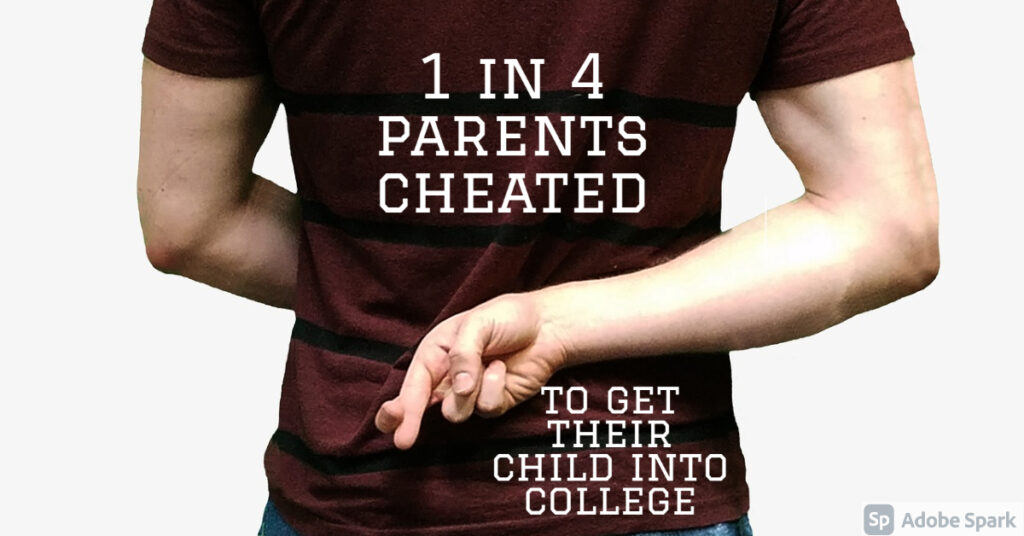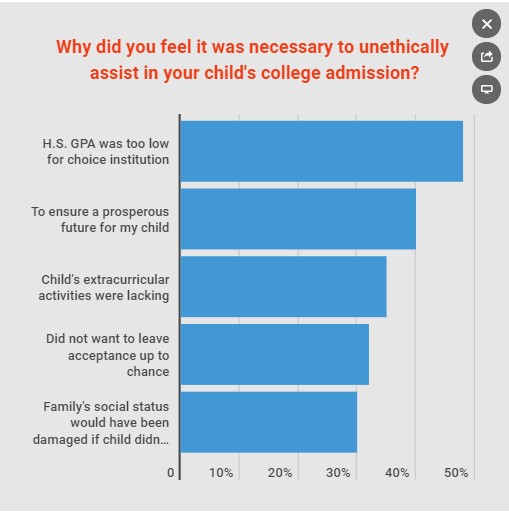
If you watched the Netflix Special “Operation Varsity Blues: The College Admissions Scandal”, you might think that only rich parents cheat to get their kids into college. But according to a new survey from Intelligent.com, a trusted resource for online degree rankings and higher education planning, you would be wrong.
What did the survey find?
According to the survey, cheating was more common among families from high-income households and parents who made less than $49,000 annually. In contrast, only 19% of cheaters are from middle-income homes.
“We’ve heard stories and scandals about college-admissions cheating among celebrity parents, but this survey reveals that it’s not uncommon for average parents to use unethical practices during the college application process,” Intelligent managing editor Kristen Scratton says. “Interestingly, 25% of our survey respondents cheated by listing false achievements, making sizable donations, or getting a test-taker to impersonate their child on the SAT or ACT test.”
Survey results indicate that 1 in 4 parents cheated to get their child into college. Nearly half of parents admitted to cheating because of their child’s low high school GPA. Another 40% of the people surveyed said they cheated to ensure a prosperous future for their child.
According to the study, 52% of all respondents made monetary donations to improve their child’s chance of being accepted into a college or university. Forty-one percent of parents said they arranged for another individual to take their child’s standardized tests. Another popular method of cheating is listing false volunteer work or achievements, and 1 in 4 parents admitted to this practice.
What forms of cheating were most prevalent?
Intelligent.com defined “unethical actions” as the following:
- Falsifying achievements or volunteer experience on a college application
- Writing or paying someone to write a student’s application essay and/or letters of recommendation
- Bribing college admissions officials
- Making a sizable donation to an institution
- Encouraging a student to cheat on standardized tests or having someone else take the standardized test for the student.
What do these findings suggest?
Parents aren’t willing to leave their student’s college dreams to chance. The significant rate of cheating at private non-profit universities can likely be attributed to more rigorous admissions requirements and higher prestige of these institutions, which include Ivy League schools and top research universities. Acceptance rates for the most prestigious colleges in the U.S. typically hover around 10%, making every aspect of an application critical, to the point where parents and students may fudge some details to give their application a boost.
When parents were asked to identify the reasons why they felt it was necessary to take these unethical actions, nearly half pointed to their child’s low high school GPA.
Additionally, 40% of parents cheated to “ensure a prosperous future for their child.”
See the chart below from Intelligent.com:

Conclusions
There are over 4000 colleges in this country for your student to attend. Where they go is not as important as what they learn. There are many colleges that offer a superb education that is affordable and accessible for every student. If you or your student need to cheat to ensure their chances of admission, there is a deeper problem.
